Funder: Water Research Commission (WRC)
Duration: 2025 - 2028
Team: University of Cape Town (UCT): Dr. Amber Abrams
This project proposes in-depth engagement, ethnographic details, and a series of workshops in at least two sites to explore the frameworks for health vulnerability indicators developed in earlier projects, while also exploring related pathways away from exposures. Researchers on this project will work with neighborhoods they have already engaged with on topics of flooding, testing the indicators, but also with the aim to begin to develop local, context specific, and evidence-informed collaborations to reduce the impacts of flooding. Through this project, dedicated funding will support two junior researchers (PhD and Masters candidates) with the aim of developing a cohort equipped with evidence-base informed practices that also take into account people’s lived experiences. The research itself, especially the intended first phase of this proposed project, will consolidate data and information; the overview that the first phase provides will be disseminated to decision and policy-makers with the hope that evidence can influence practice. Case studies and implementation experiences around co-designed interventions to improve liveability of spaces, using NbS and water sensitive design, are needed to support efforts, like the City of Cape Town’s to focus on water sensitivity; decision makers with this agenda in mind need case studies to understand what does work, in which contexts and with which enabling factors. This research would contribute at minimum two case studies towards this understanding. The project aims to reorient research practice and dissemination in the final phase in such a way as to empower local residents with knowledge; to provide venues through which to share lived experiences with flooding; to collaborate to develop ways to better respond to flooding events across local contexts (political, social, financials); to develop local interventions. By creating a project that has local salience and in-built processes to provide locally driven pathways forward – away, in this case from extreme vulnerability, through for example, locally developed nature-based solutions – engagement, research, activism and improvement can occur together through the planned workshops. Sustainable development solutions through nature based, water sensitive processes would be the intended outcome of our workshop series - the aim being to collaboratively co-design with local residents interventions that address the pressing concerns they raise, specifically around flooding. Not only does this project work to develop human capacity in knowledge sharing with local citizens, but it also works to develop a cohort of public health and social scientists focused on water, and water-related health topics.
Funder: The British Academy
Duration: 2025 - 2026
Team: Jana Fried, Sue Charlesworth & Liliane Binego (Coventry University); Amber Abrams & Kirsty Carden (University of Cape Town)
The project will investigate to what extent informal settlements are considered in local and national policies around the provision of drainage and greywater management, and whether and how such policies and their local implementation were developed using evidence to ensure they take account of local contexts. We will base our investigations in the Western Cape province of South Africa, using accessible documentation and engagement with local stakeholders to analyse whether evidence of specific needs and conditions of informal settlements has been effectively integrated into policy. The Sustainable Development Goals (SDGs) include SDG6, whose ambition is to provide clean water and sanitation for all by 2030. For South Africa, this is proving difficult, particularly when 24% of the urban population lives in informal settlements, generally lacking drainage for runoff and management of greywater. Our proposal can remove one potential barrier to South Africa achieving SDG6 and improving human and environmental health.
Funder: Water Research Commission (WRC)
Duration: 2024 - 2027
Team: University of Cape Town (UCT): Ms. Kalpana Maraj, Ms. Emily Nicklin, Dr. Victor Parry, A/Prof. Kirsty Carden, A/Prof. Anwar Jardine.
This project specifically focuses on the risks associated with using CEC-contaminated surface water for irrigation in small-scale agriculture in peri-urban catchments. The potential uptake of CECs by crops raises concerns about their entry into the human food chain and subsequent impacts on public health (Christou et al., 2018). To address these challenges, this project seeks to determine the fate of CECs in the environment. In addition, it will elucidate the potential ecotoxicological effects of these contaminants in small-scale agriculture where contaminated surface and groundwater, as well as alternative water sources, such as greywater and stormwater, are used to irrigate crops. The project will achieve this by establishing a robust protocol for monitoring CECs in both surface water and groundwater sources in peri-urban catchments, providing more insight into the extent of CEC pollution in these areas. Furthermore, the project will investigate the uptake and accumulation of CECs in soil and crops, thus determining the potential exposure pathways and associated ecotoxicological risks. Information gathered from these research activities will be used to develop a decision support tool. This tool aims to assist policymakers in regulating the indiscriminate disposal of CECs into the environment and formulating water use and reuse guidelines that consider the potential human health implications posed by CECs.
Funder: BMBF German Federal Ministry of Education and Research
Duration: 2024 - 2027
Team: HafenCity University (HCU), Hamburg Public Wastewater Utility, Viva con Agua (VcA), Urban Waters Consulting GmbH (UWC), University of Cape Town (UCT), Stellenbosch Municipality, Ardhi University (ARU)
This project aims to address the pressing water security challenges faced in South Africa, with a focus on the Western Cape province through management of greywater and stormwater. The project implements water-sensitive urban design (WSUD) principles to mitigate water scarcity and promote sustainable water management practices. In this context, the project primarily emphasised the adoption of decentralised and nature based solutions (NbS) for grey water and stormwater management, targeting both informal settlements and high-density middle-income areas. The main phase of NEU-Water is designed to demonstrate and analyse technology and urban planning interventions. The first phase of the project is complete and the project team have been invited to submit Phase 2 which involves design and implementation. Supported by the Federal Ministry of Education and Research (BMBF) in Germany and based at the Water Hub.
The team presented at the Water Security in Africa (WASA) Conference between 25th - 27th September 2024, the launch of Phase 2 of the NEU Water project. The WASA research programme contributes to increased water security in Africa by developing innovative water technologies and improved water management practices. The research aims to improve water supply and wastewater management for the benefit of people and environment in the face of climate change.
Funder: EU Horizon
Duration: 2024 - 2027
Team: University of Cantabria, Three O’ Clock, KLINK, University of Pisa, University of Rey Juan Carlos, Galicia Technological Institute Foundation, FCC Aqualia SA, University of Copenhagen, National Technical University of Athens, IST-ID Association of Higher Technical Institute for Research and Development, Imperial College of Science Technology and Medicine, RIA Association – Innovation by Nature, District Basin Authority, Coventry University, Acque SpA, University of Cape Town.
In recent years climate change has caused both floods and rainless periods around the world, impacting society and economic sectors globally. The Mediterranean and Southern Africa are among the most impacted by drought. Moreover, as the share of the world’s population living in urban settings is expected to rise to 80% by 2050, the demand for adaptable water solutions will intensify, while rural communities will suffer from depopulation and a progressive lack of services. Decentralised water management (DWM) solutions such as wetlands, rainwater harvesting systems or green roofs can contribute to maximize water resource use, by treating wastewater close to its source and repurposing it for suitable uses, especially in areas where centralised water management is not technically or economically feasible. Moreover, DWM represent a great opportunity to create a sustainable circular economy around Nature-based Solutions (NbS), involve local communities and increase quality of life with more environmentally friendly infrastructure. However, despite their many benefits, adoption of decentralised solutions at EU level remains low due to legislative barriers, regulatory complexity, and lack of social acceptance. The WATERSENS project’s overall goal will be to overcome these challenges by providing technological evidence on the benefits brought by DWM solutions and an integrated decision framework to aid water authorities and related stakeholders in the selection, design, integration and operation of these DWMs.
Funder: Water Research Commission (WRC)
Duration: 2024 - 2026
Team: University of Cape Town: Dr. John Okedi; Dr. Siddique Motala; A/Prof. Kirsty Carden; Mr. Gundo Maswime; Cape Peninsula University of Technology: Mr. Kevin Musungu; South African National Space Agency.
South Africa is experiencing escalating environmental challenges attributed to climate change, and various studies have linked the change in climate to flood risks and urban heat. Further, these climate change impacts have far-reaching consequences for public safety, urban infrastructure, and environmental sustainability. Various studies have also shown that Sustainable Urban Drainage Systems (SuDS) i.e., urban drainage systems designed to manage stormwater as close to source as possible (to mimic natural drainage), if well designed and managed, can mitigate the issues of flood risks and urban heat. To achieve this objective, we would need an integrated, data-driven, and technologically advanced approach to design, implement, and manage SuDS in South Africa. Traditional methods of urban drainage design, implementation and management often overlook or lack capacity to incorporate and utilize satellite imagery and remote sensing data in combination with machine learning and artificial intelligence techniques. This oversight or lack of technical capacity hampers the ability to predict and mitigate flood risks; and address urban heat islands. While Sustainable Drainage Systems (SuDS) hold promise as a solution to mitigate these impacts, there remains a significant gap in effectively adapting and optimizing these systems to combat climate change. The integration of machine learning (ML) and artificial intelligence (AI) techniques, combined with satellite imagery and remote sensing data, offers a novel approach to address these challenges. To combat these issues effectively, there is a pressing need to adapt and optimize new data sets and tools since the conventional approaches to design, planning and management of SuDS do not fully harness the available resources and technological advancements. This study will address these critical issues by developing a method that leverages machine learning and artificial intelligence to harness satellite imagery and remote sensing data for optimizing SuDS. By doing so, it seeks to provide a data-driven, cost-effective, and environmentally sustainable approach to mitigating the impacts of climate change, specifically floods and urban heat.
Funder: Erasmus+ Capacity Building for Higher Education Call
Duration: 2024 - 2026
Team: Future Water UCT; Rhodes University; Cheik Anta Dop University of Dakar (UCAD, Senegal); Deltf University of Technology (TU Delft, Netherlands); Polytechnic School of Thies (EPT, Senegal); National Institute for Agricultural and Environmental Sciences (France); National Institute for Agricultural Research (INRA, France).
In collaboration with Rhodes University, through the Institute for Water Research (IWR), we are working on a three-year grant under the Erasmus+ call for Capacity Building for Higher Education. Entitled “Nature-based solutions for African Climate Resilience”, the project’s overall objective is to enhance the capability of future professionals (current students) and of current environmental specialists and engineers (through professional development courses) for facilitating climate resilience in Africa. As a first step, the project focusses on promoting NbS in Higher Education Institution (HEI) curricula. NbS is also high on the agenda of the EU (Green Deal), Africa (Agenda 2063 for Africa's Development: The Africa We Want) and national (climate) policy documents in Senegal and South Africa. Considering the need to build capacity for these solutions in Africa, the project goes beyond university curricula in HEIs and responds to the need to build capacity of actors who design, develop and implement of resilient infrastructure. This project works with civil engineers (the designers) and environmental scientists (the gatekeepers) on nature-based and resilient infrastructure development. See NbS4AfrRes webpage below for more!
Funder: International Development Research Centre IDRC - CRDI
Duration: 2024 - 2026
Team: Dr. Petra Holden, A/ Prof. Gina Ziervogel
The Tuwe Pamoja project aims to strengthen critical capacities across key urban actors (city officials, informal residents, NGOs, CBOs and researchers) to co-design and implement Nature-based Solutions (NbS) in ways that contribute to urban development that is just, sustainable and climate resilient, particularly for the most marginalised.
The starting point is to strengthen capacity to generate and consolidate both qualitative and quantitative sources of on-the-ground social and ecological data that can inform NbS. Capacities also need to be strengthened to work with this evidence base to make decisions around planning, implementation and policy related to NbS. The project will draw on a Climate Resilience Development Pathways (CRDP) framing that emphasises the importance of bringing together multiple actor groups (with various values and priorities) and different evidence types (qualitative and quantitative) to frame nature-based climate action and interventions in a more holistic context that considers diverse needs across time.
Tuwe Pamoja will build capacity in four African cities, where there are active Slum Dweller International (SDI) federations, namely Cape Town (South Africa), Lusaka (Zambia), Accra (Ghana) and Nairobi (Kenya). University partners across the four cities will collaborate with SDI and their local federations before expanding lessons through two global networks: SDI, which works across many cities at the local and community level, and the C40 Cities network, which works across many cities at the city government levels.
See further details to the Tuwe Pamoja project below.
Funder: French Ministry for Foreign and European Affairs
Duration: 2024 - 2026
Team: French Geological Survey (BRGM), City of Cape Town (CoCT), University of Cape Town (UCT), Centre for Bioprocess Engineering Research (CeBER)
This study aims to assess the microbial biodiversity of managed aquifer recharge (MAR) water and the receiving aquifer system, while exploring the functional potential of the microbiome in relation to water chemistry and water quality. This project uses Atlantis and Mitchell’s Plain as comparative sites for a systematic analysis that will yield outcomes at difference levels: a comprehensive evaluation of the microbial biodiversity of the aquifer system (the biological state-of-play); the potential ecosystem services provided by the aquifer (what is at stake), the potential influence (positive and negative) of MAR; and, and the identification of biomarkers that can be used to monitor the medium-long term impact of MAR on receiving aquifer health and water quality. The methodologies developed and validated at the study sites can then be applied at a national level, augmenting a toolbox for water management in South Africa and feeding into national policy development. Finally, the project will feed into the development of outreach / governance/ policy aspects at different scales and levels of government around groundwater resources, as well as the development of a MAR suitability map.
Funder: UCT Grand Challenges Program
Duration: 2023 - 2025
Team: Principal Investigators, A/Prof. David Ikumi & Dr. Amber Abrams
South Africa faces increasing water scarcity which requires a shift in relations with water of varying qualities to ensure equitable and sustainable future systems. Research is needed to consider (i) existent governance and the gaps in current policy, (ii) challenges with conventional approaches to water resource management, (iii) technological innovations, (iv) peoples’ relations regarding water and (v) future potential risks related to water. The RRIP research programme intends to address these through a multi-pronged, processual and transdisciplinary approach that will focus on efforts towards achieving the ‘net zero water’ concept, which aims to reduce water demand, maximise alternative water sources, and minimise waste, whilst ensuring investment in people, meeting of local interests and promotion of equity and justice.
Methods include laboratory and field scale studies, GIS mapping, statistical analysis, modelling, including the use of digital twins and IoT, scenario analyses, water quality risk assessments and stakeholder consultation and collaboration. The aim of this research is to improve Africa's water security through the co-creation and co-design of pragmatic solutions and governance systems for reusing and recovering resources in water, enhancing water management and addressing risk. Researchers from faculties of EBE (Civil Engineering, APG), Science (EGS), Health Sciences (Public Health), Commerce (Economics), Law (Public Law) and Humanities (Social Anthropology) will work together in transdisciplinary teams, and expand into other departments/ disciplines as required. We will work alongside civic organisations and stakeholders in the water and sanitation sector, and within partnerships with external institutes on the development of translational research outputs to influence policy. The research team acknowledges that one key role is to act as knowledge bridges and relational connectors, linking policy and decision makers/implementers with local residents, workers and citizens who, daily, face the realities that emerge from decisions and policies.
Duration: 2023 - 2025
Team: Prof. Kevin Winter
Collaboration with Technical University of Munich with experimentation at the Water Hub.
The main objectives of the pre-feasibility study are to assess opportunities for resource recovery at the Water Hub, including:
- To examine current water quality and effectiveness of currently implemented nature-based solutions and recommend further solutions such as sequential managed aquifer recharge technology (SMART) if appropriate;
- Examine the feasibility of water reclamation and reuse;
- Assess energy recovery through anaerobic co-digestion of different feed stocks; support development of business plans for entrepreneurship opportunities from organic (food) waste-to-energy streams, nutrient recovery (organic fertilizer) etc., and serving local markets;
- Assess benefits for ecosystem services regeneration of deploying this Nexus approach; and
- Support knowledge dissemination and capacity building among project partners and stakeholders through the enabling environment provided by the Living Lab concept of the Water Hub.
A recent presentation on the research provides updates on the progress here.
Funder: University of Cape Town
Duration: 2021 - 2025
The aim is to support UCT’ Vision 2030 and UCT’s environmental sustainability strategy. The project will focus on 5 key themes and consider the environmental, financial and social impacts associated with these themes in the UCT campus context a number of sustainability themes: Energy, Carbon footprint, Water, Waste Management and Wildfire in UCT. A transdisciplinary community of practice to work in a coordinated manner across these various research themes. A sustainable campus map emerged (click here to view map) from the Khusela Ikamva project, showcasing the various UCT sustainable campus features, initiatives and Living Lab interventions, as well as future opportunities. This map aims to extend the knowledge and create awareness of examples of environmentally sustainable interventions that exists on UCT campuses.
Key areas of intervention and work packages:
1. Carbon footprint/Energy Nexus (led by Professor Harro von Blottnitz):
Development of a cost optimal pathway and business case for UCT to strongly reduce its Carbon emissions as required by science.
2. Waste-to-Energy, Water and Food Nexus (led by Dr Thanos Kotsiopoulos)
Development of a campus-wide, integrated food-water-energy system based on the anaerobic digestion (AD) of organic waste with concomitant technologies to produce valuable products
3. Wildlife, Waste & Food Nexus (led by Professor Nicoli Nattrass)
Educating the campus community about the ‘waste–rodenticide–wildlife’ connection through action research and by employing innovative art to support recycling, waste reduction and integrated pest management of external spaces on upper campus.
4. Sustainable Water Management (led by Dr Kirsty Carden)
Transforming UCT into a ‘no-drop wasted’ campus by seeking to embed a more holistic approach to water management in line with Water Sensitive Design (WSD) principles. This will be achieved by assessing alternative water use opportunities on UCT’s main campuses and selecting projects that could be implemented as exemplars/test cases.
5. Building an inclusive university wide community of practice for transformative sustainability outcomes (led by Dr Britta Rennkamp, Prof Sheona Shackleton in collaboration with Manfred Braune):
Building a university community of practice.
Below is a diagram depicting the core technical areas of intervention of the project and how these might interface and intersect – as the project develops, team leaders will build on these intersections and opportunities.
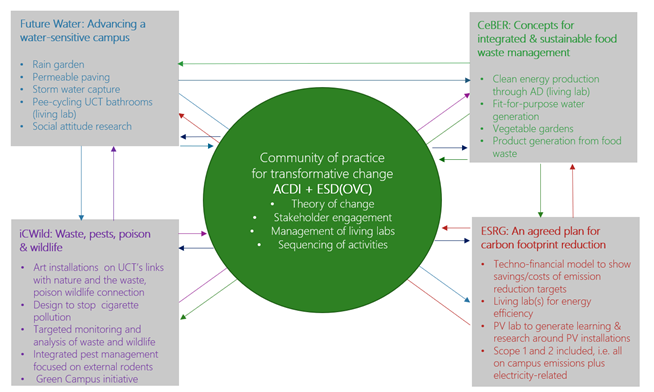
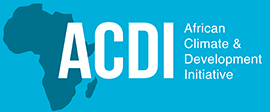

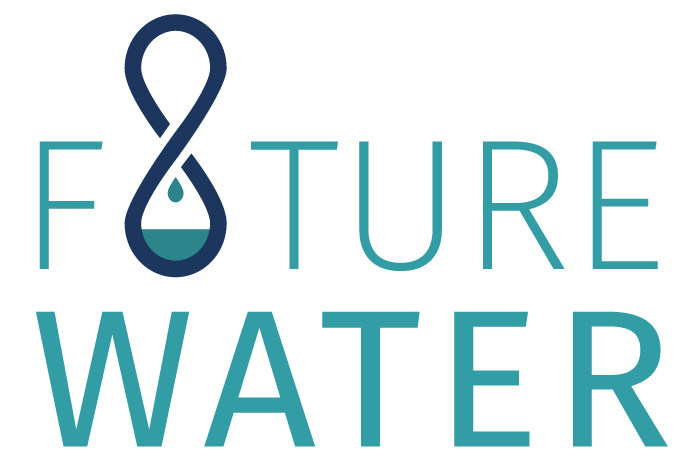
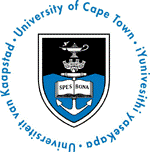

Funder: DANIDA Strategic sector collaboration program Phase 1 and Phase 2
Duration: 2019-2021 (Phase 1); 2022 - 2025 (Phase 2)
Team: A/Prof. Kirsty Carden, Prof. Neil Armitage, Dr. John Okedi, Prof. Kevin Winter, Dr. Jessica Fell, Dr. Amber Abrams
The overall objective is to identify opportunities for, and generate knowledge on, the physical and institutional integration of decentralised nature-based solutions into the urban water cycle to support and accelerate a transition towards water resilience in South African cities. The experimental work will be addressed in two inter-related work package (WP) streams: WP1 on physical experimentation with and evaluation of WSD options at different urban scales; and WP2 on exploring governance processes for enabling the emergent transitions. Visit the PaWS project page, learn about project outputs or read a news archive.
Funder: Water Research Commission (WRC)
Duration: 2022 - 2024
Team: A/Prof. Kirsty Carden, Dr. Amber Abrams, Dr. Sithabile Hlahla
Climate change impacts and rapid urbanisation in South African cities contribute to problems associated with water scarcity (drought), flooding (lack of drainage) and environmental degradation (poor-quality runoff to local water bodies), highlighting widening concerns about the resilience of conventional water infrastructure. Water sensitive design (WSD) is a complementary approach to addressing some of the deficits of conventional urban water services that takes a total water cycle view through the integration of built water infrastructure with green infrastructure, often in a decentralised manner. These efforts contribute to achieving a water sensitive city (WSC) with an associated stormwater component, often referred to as Sustainable Drainage Systems (SuDS), although recent literature suggests ‘Blue-Green Infrastructure’ (BGI) is a more appropriate umbrella term. BGI comprises mostly nature-based approaches that can help cities to return urban rainfall-runoff processes to more natural hydrological cycle flows. BGI including WSD and SuDS can offer cities multifunctional and alternative ways to adapt to climate change. For the mainstreaming of approaches like WSUD, it is necessary to move beyond physical experimentation towards the interrogation of existing governance structures, cultures and practices in a manner that can highlight policy windows for the anchoring of insights gained in the policy processes and outscaling possibilities. We explored first the policy landscape, and then the lived experience of implementing BGI in already existent stormwater ponds in order to develop an implementation guide on ‘best bets’ providing guidance directives on how the possible multiple functions of stormwater ponds (including MAR) can be planned, designed, monitored, upscaled and aggregated in collaboration with key stakeholders (including city officials, technical specialists and local residents) to provide a wider range of water-related, amenity and liveability services.
Below are the individual guidelines, please note that this is part of a larger comprehensive report that includes the purpose of the guidelines; an overview of Blue-Green Infrastructure (BGI) and Managed Aquifer Recharge (MAR); the scope of the guidelines and the intended audience. The full report also covers stakeholder identification, stakeholder roles and how to use the guide. For more detailed information, please refer to the full report: Implementation guideline for Managed Aquifer Recharge (MAR) in combination with Blue-Green Infrastructure (BGI) at local settlement level.
- Preface
- Acknowledgements
- Acronyms and Abbreviations
- Introduction
- Key Terms
- Guideline 1: Scope local context (including local government priorities) - Addresses the need for an initial scoping process before pursuing any MAR-BGI project. This process includes identifying local stakeholders, some basic understanding of technical needs, and the importance of scoping the local context before confirming site locations and beginning any coalition building process.
- Guideline 2: Encouraging Civic Engagement/ Organisation / Coalitions Provides practical guidance and key considerations for the development of coalition/s around the proposed implementation aim.
- Guideline 3: Adhere to relevant legislation, policies and programmes Outlines some of the relevant policy and legislation, and highlights the fact that current policies may have gaps regarding the incorporation of BGI initiatives into existent programs, practices and policies. It is always important to ensure that all projects align with, and do not work against local by-laws, legislation and programming.
- Guideline 4: Critical appraisal of planned implementation Addresses critical pinch points for consideration from experts involved in processes of implementing BGI in the context of MAR. Critical reflection points are provided for proposed implementation sites, along with key consideration related to the larger system within which the site is situated.
- Guideline 5: Facilitating Engagement Outlines key considerations in building engagement process and planning MAR-BGI efforts.
- Guideline 6: Formalising Local Involvement Provides resources and tools in establishing mechanisms for sustainability of the project, from governance to management and maintenance planning.
i. Appendix A
ii. Appendix B
iii. Appendix C
iv. Appendix D
v. Appendix E
vi. Appendix F
vii. Appendix G
viii. Appendix H
Funder: Water Research Commission
Duration: 2021 - 2024
Team: A/ Prof. Jennifer Broadhurst, Dr. Megan Cole
The overall aim of the project is to address the issue of mine closure in the context of local socio-economic development and community well-being and livelihoods by conducting an assessment of mine closure risk and post mine closure land-use opportunities and assessing impacts on the host communities. Visit the project page here or the Mine Closure Risk and Opportunity Atlas.
The project delivers enhanced knowledge and information pertaining to:
- A set of indicators and national map for assessing and predicting mine closure risks on the environment and community well-being in South Africa.
- A set of indicators to rank and score post-closure land-use opportunities.
- A database of mine closure risks for mining communities in South Africa.
- Identification and ranking of opportunities for post-mining land use for four case studies in Limpopo (PGM mining), Mpumalanga (coal mining), Gauteng (gold mining).
The Water Hub is an existent off campus Living Lab in Franschhoek Valley.
An abandoned wastewater treatment works (WWTW) in Franschhoek was dubbed the Water Hub by researchers in 2018. Constructed in the 1960s on municipal land, the abandoned property offers opportunities to build a resource recovery centre and an innovative research project. This began with the treatment of contaminated surface water runoff of the Stiebeuel River bisecting the study site. The Water Hub's location provides a good test site reflexive of many of South Africa’s waterways, as informal settlement and urban poor coexist alongside attractive vineyards and affluent landowners. Visit the linked page above for more details and explore our flipbook.
Funder: Multiple sources
Duration: 2019 - Ongoing
Team: Dr. Amber Abrams (UCT), Dr. Anna James (UCKAR), Dr. Sarah Van Borek (U Toronto)
This collaboration established the Making Waveforms short course series. Through experiential learning, demonstrations and a number of field trips (i.e. water sports, riverside soundwalk, etc.), participants in this course are asked to explore their relationships with water. They are paired with local Knowledge Keepers and are tasked with building meaningful connections over a period of five weeks, to create short, site-specific videos to raise awareness about the importance of healthy waterways.
In addition this collaboration has developed a number of other ongoing efforts, including Source To Sea mural and engagement activities, as well as workshops that sensitize residents to the ecological and social values of watery spaces. We work with NGOs and youth, as well as with politicians and education facilities to develop interactive, engaged ways to share with many publics our research, translate scientific and technical research for a variety of audiences, and explore all kinds of values and knowledges around water and waterscapes. This has included conferences and ongoing, travelling art engagements and installations.
Funder: Multiple
Duration: Ongoing
Team: Prof. Dyllon Randall, Dr. Caitlin Courtney
Our urine only makes up 1% of the volume of domestic wastewater streams but it contains about 80% of the nitrogen, 56% of the phosphorus and 63% of the potassium. These are three key ingredients required for fertilizer production, yet we literally flush these away every day. This project aims to rethink human urine as a “waste” by recycling it into many useful products (pee-cycling).
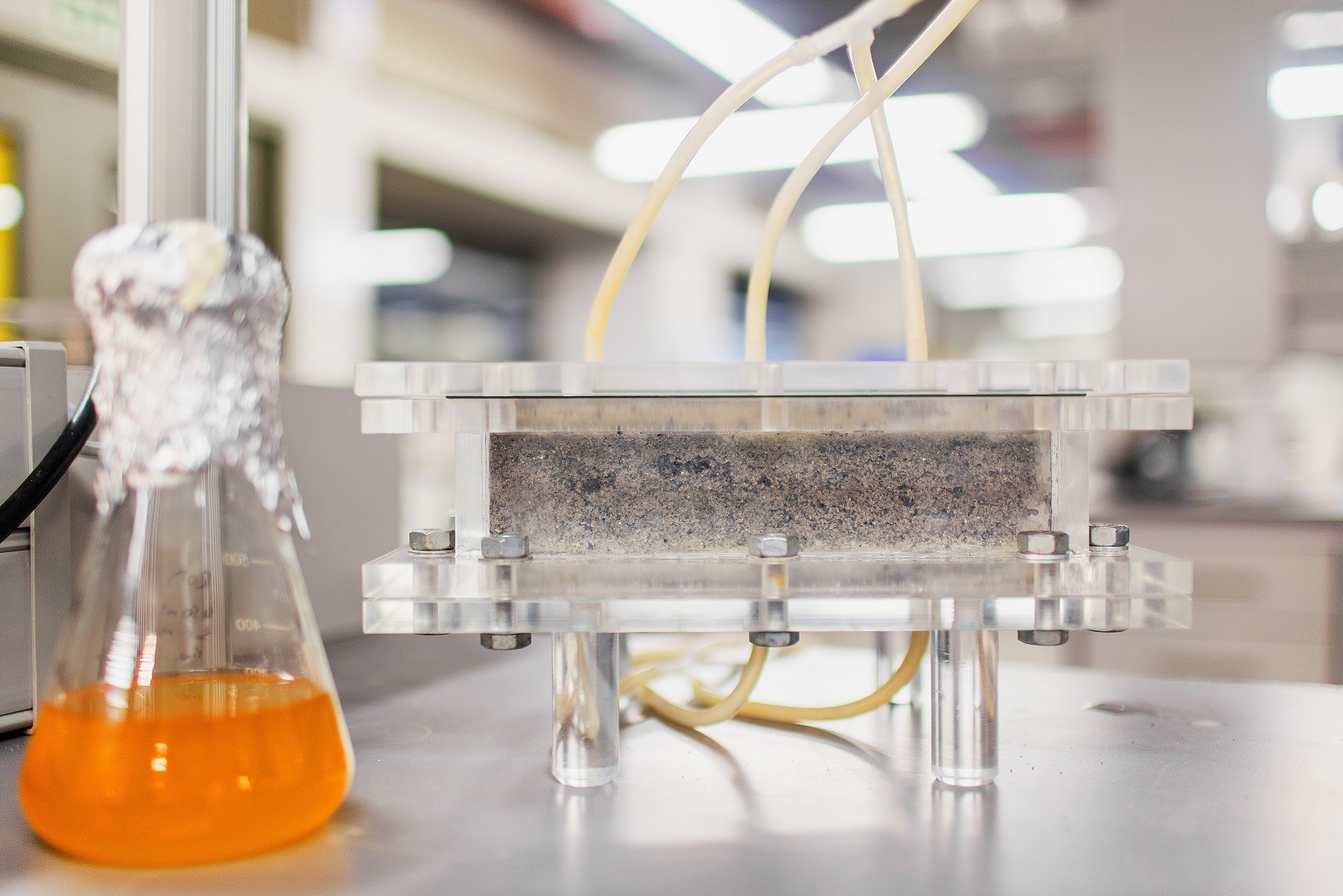
Future Water, UCT is one of 12 core partners in the Cluster that is co-led by Rhodes University (ARUA) and University of Ljubljana (The Guild).
The global landscape for management of our water resources is changing. Increasing demand, industrialisation, climate change and increasing entwining of social and ecological systems means traditional water resource management (WRM) is not meeting the challenges of our changing environments. Furthermore, disconnects between science and practice, means innovative research and technological advances often don’t translate to practical WRM. Decisions about future WRM are therefore highly uncertain, increasing risks and vulnerability for people and environment. Research is needed to consider existing governance and policy gaps, challenges with conventional approaches to WRM, technological innovations, peoples’ relations regarding water, and future potential water related risks. Future WRM needs to be transformative in order to become sustainable and have relevance for Africa and Europe. This Cluster focuses on exploring different solutions, learning opportunities/exchanges and pathways to innovation, policy and investment in WRM in Africa and Europe, and solutions that build long-term meaningful capacity within WRM.